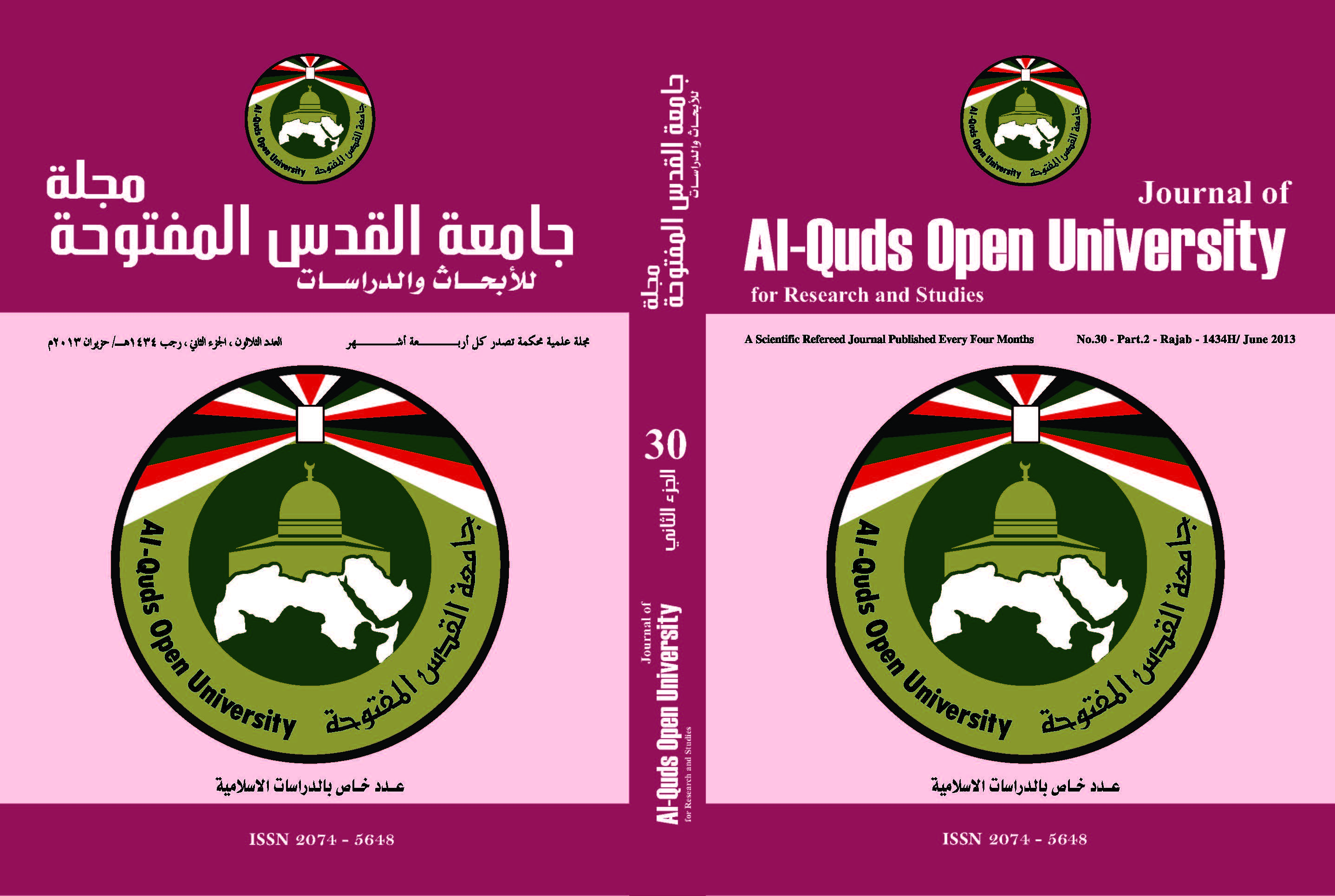التَّقليد في الفروع الفقهيّة وأثره في شروط الصلاة دراسة تأصيلية تطبيقية
الكلمات المفتاحية:
التَّقليد، الفروع الفقهيّة، شروط الصلاة، الاجتهاد، المجتهدالملخص
الحمد لله رب العالمين، وأفضل الصلاة وأتم التسليم على نبينا محمد صلى الله عليه وسلم وعلى آله وصحبه أجمعين، وبعد:
فلما كان تحصيل ملكة الاجتهاد أمراً لا يتأتى لجميع الناس لاحتياجه إلى الاستنباط واستفراغ الوسع الذهني، كان من يسر الشريعة أن كلفت كل مكلف بما يتناسب مع قدراته ؛ فأوجبت معرفة الأصول العامة والأمور المعلومة من الدين بالضرورة على العامي والمجتهد معاً، بينما خصت المجتهد بوجوب الاجتهاد في أحكام القضايا العملية التي ثبتت بطريق ظني، فهل يجوز للعامة تقليد الخاصة في تلك الفروع الفقهية؟.
ثم إن المجتهد نفسه قد لا يقدر على الاجتهاد، ويعجز عنه لسبب من الأسباب،فهل يجوز له تقليد غيره أيضاً؟.
وما أثر ذلك كله في بعض شروط الصلاة كاستقبال القبلة ودخول الوقت، هذا ما يجيب عنه هذا البحث بإذنه تعالى .
التنزيلات
منشور
كيفية الاقتباس
إصدار
القسم
الرخصة
- الالتزام التام بأخلاقيات البحث العلمي.
- الالتزام التام بحقوق الملكية الفكرية.
- حقوق الطبع والنشر تؤول للمجلة.
- الحصول على موافقة المجلة لإعادة نشر البحوث أو ترجمتها.
- الالتزام التام بتعليمات هيئة تحرير المجلة.













_2.png)
_.png)
_2.png)
_1.png)
_.png)

